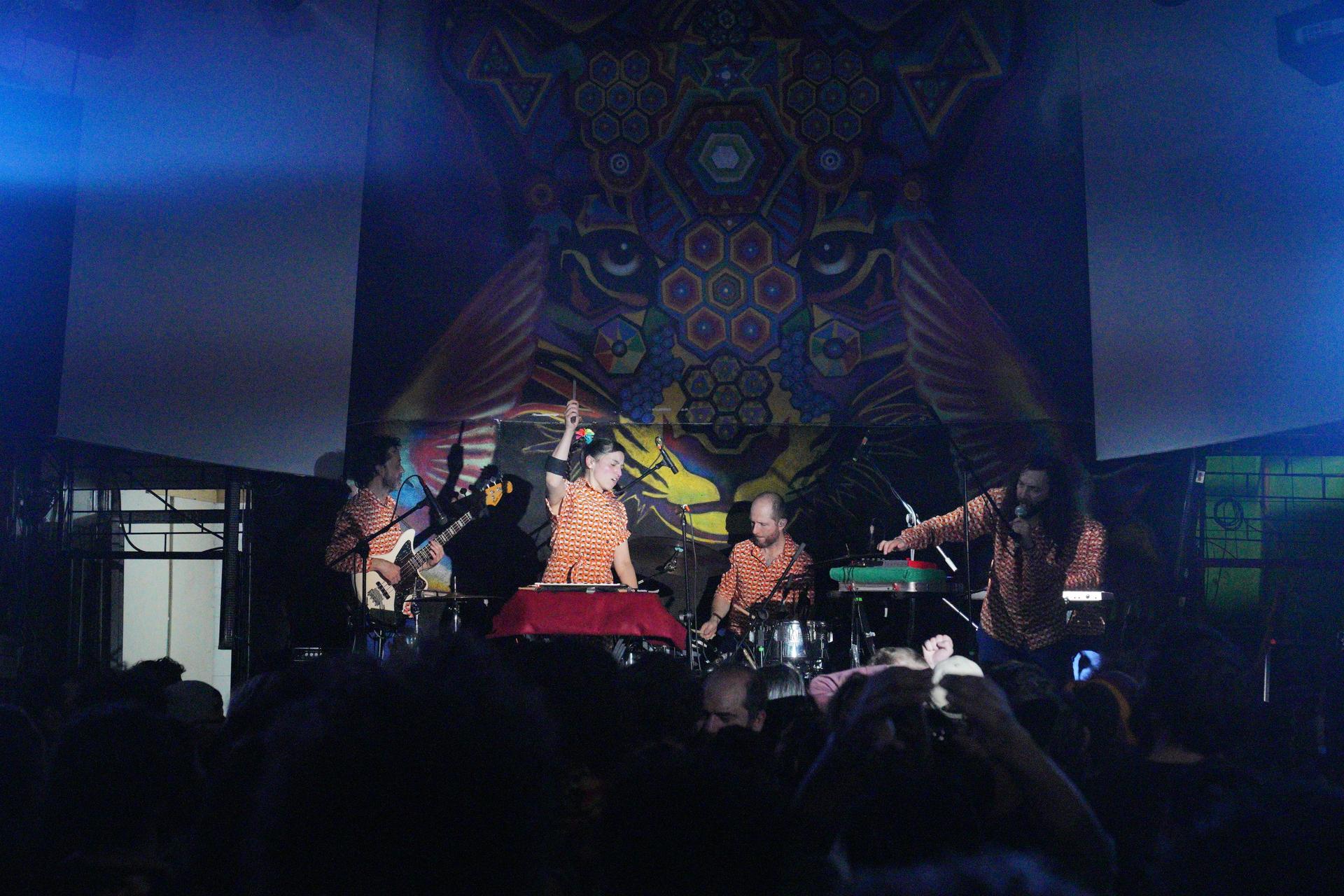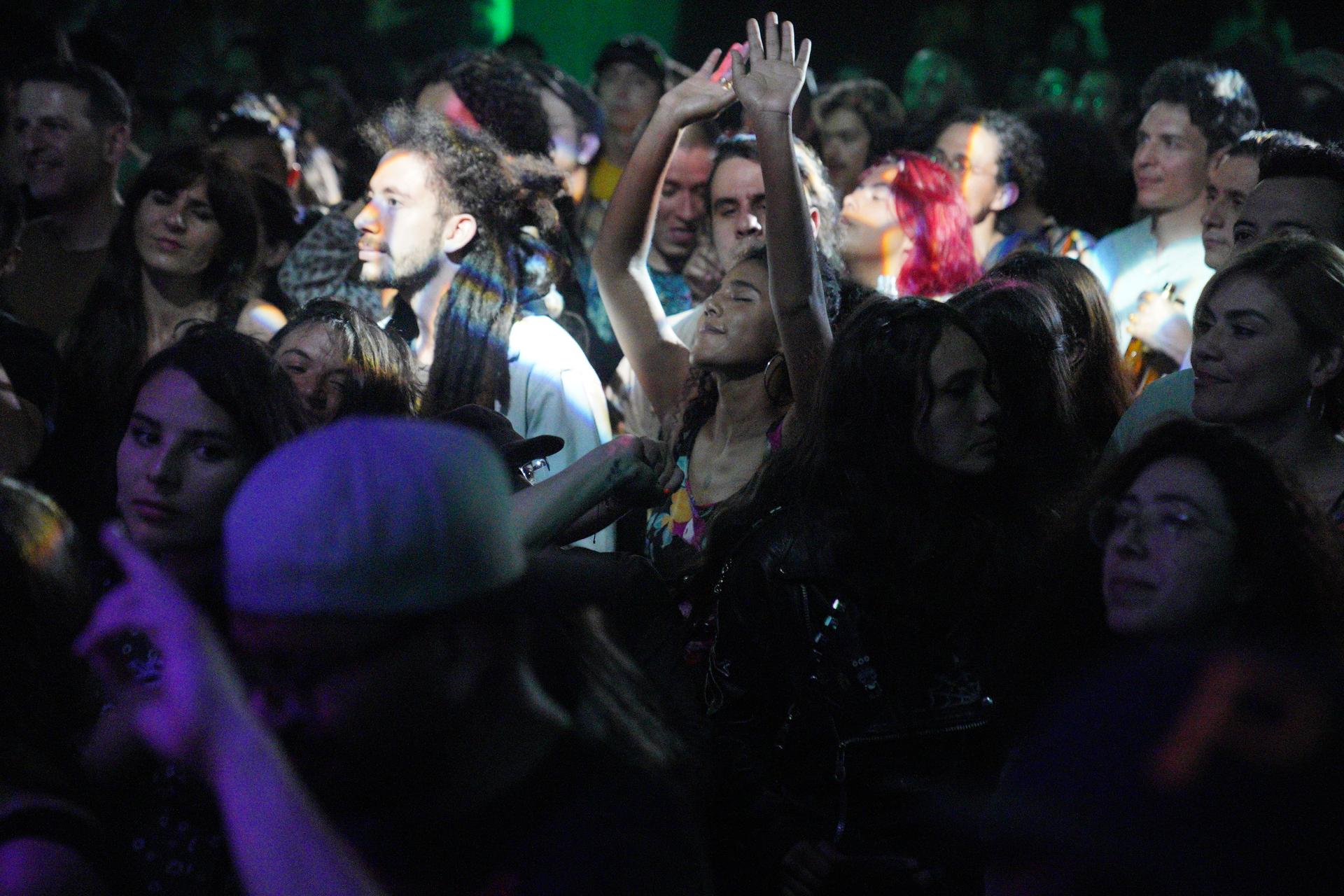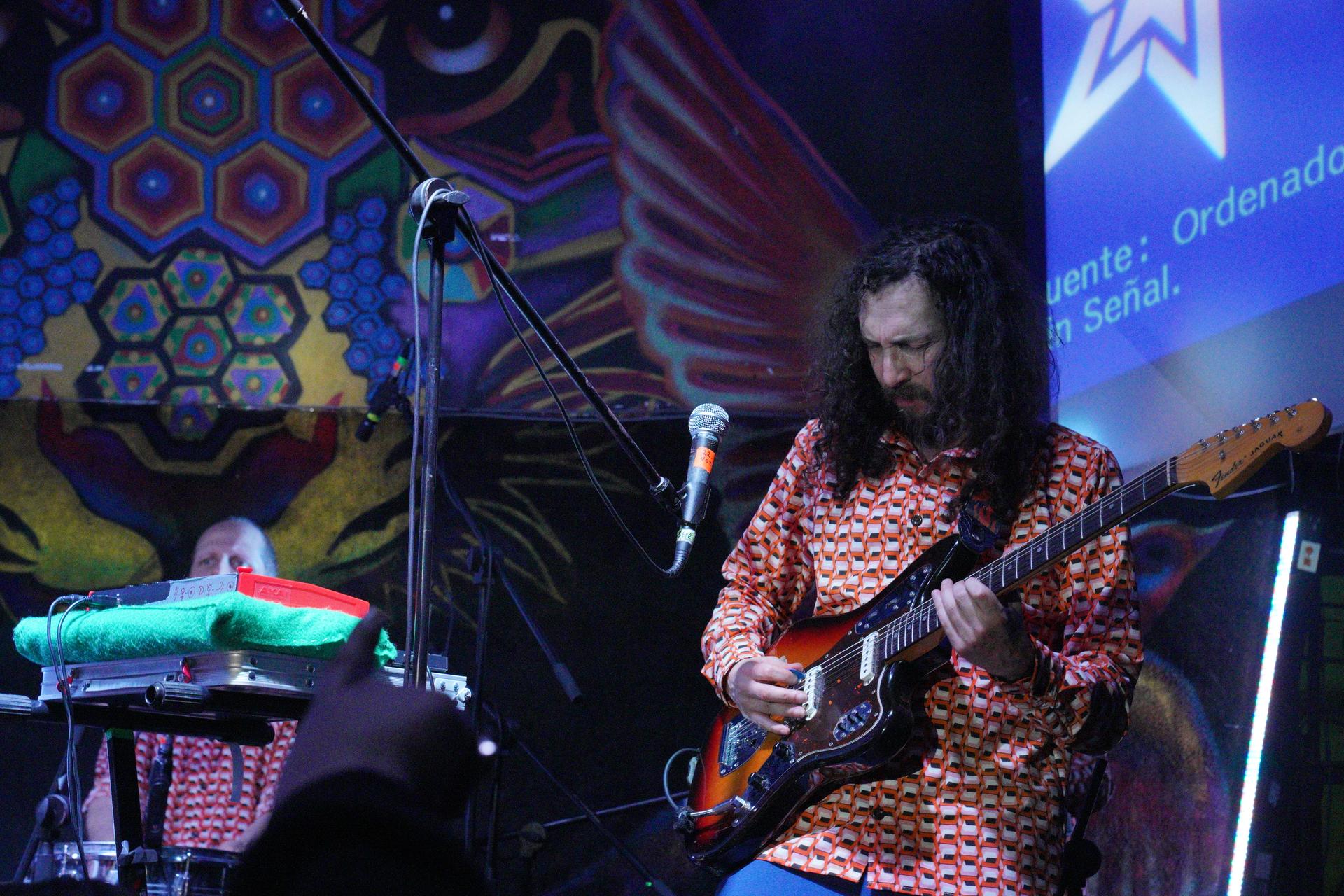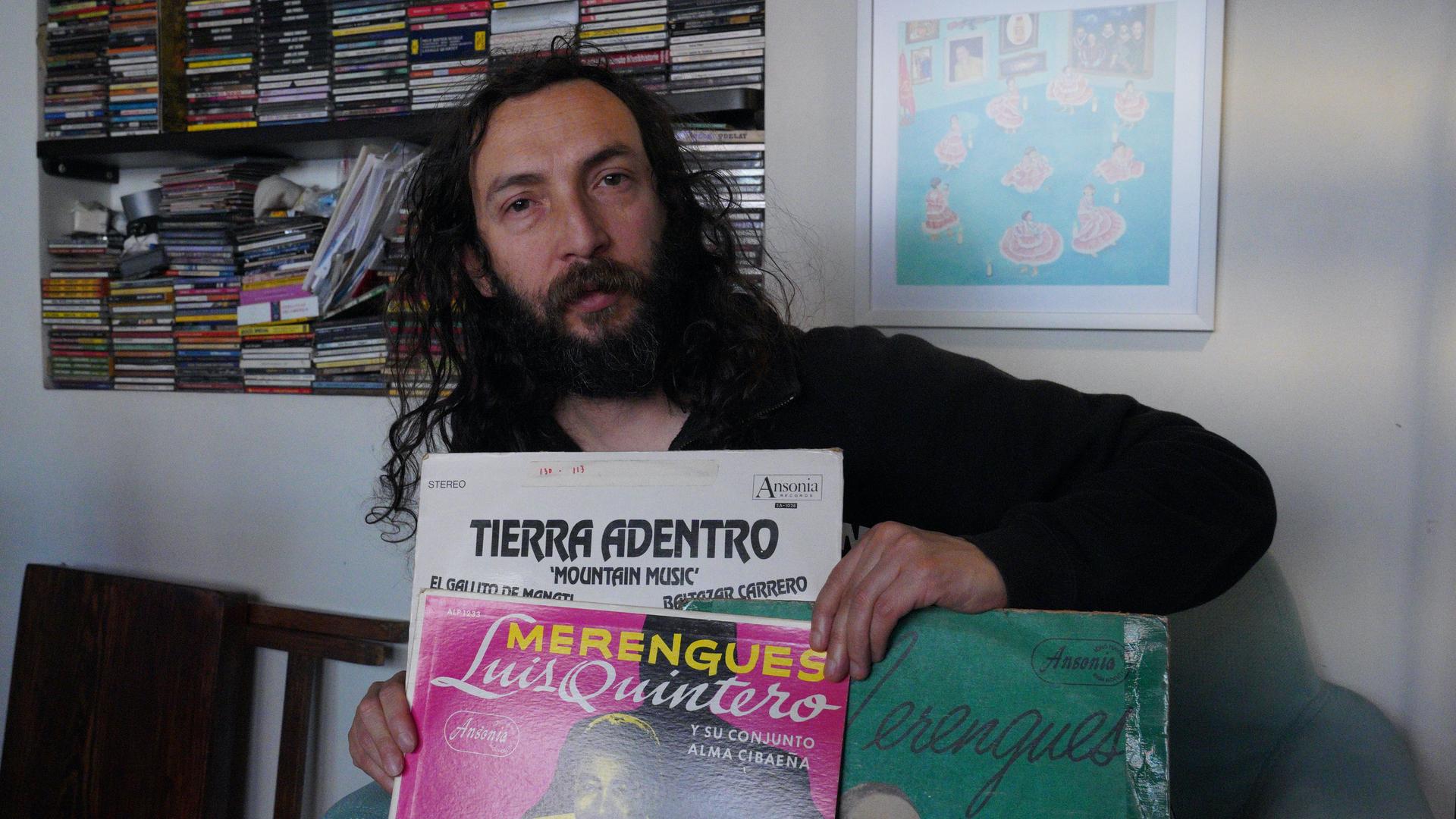The Bogotá, Colombia, band Meridian Brothers is famous for fusing tropical rhythms like cumbia with psychedelic sounds.
But recently, they have been experimenting with a rhythm known as salsa dura, which was developed 50 years ago by Latino immigrants in New York.
Meridian Brothers are about to release a new album called “El Grupo Renacimiento,” in which they pretend to be a fictional band from the 1970s. Bandleader Eblis Alvarez said that it’s part of an effort to breathe new life into the salsa dura genre, with content produced in this decade.

“Here in Bogotá, you will listen to salsa [at] every party. Or in families or [at] Christmas parties,” Alvarez said from his cozy studio in Colombia’s capital city. “Salsa is alive but they’re still playing the ’70s hits.”
Alvarez said that while recording the album, the five-member band tried to keep up with the traditional patterns of salsa dura — the fast pace and underlying percussion.
Still, the songs he composed keep some of the psychedelic flavor that the band is known for, which comes from the use of electronic keyboard effects.
The lyrics of some of the songs on “El Grupo Renacimiento” express anguish with the problems of the world. For example, “Bomba Atomica” talks about the dangers of a nuclear war.
Alvarez said that by focusing on global problems, he pays tribute to old salsa classics like “Plastico” by Ruben Blades, about plastic or false personalities, or “Juanito Alimana,” a Hector Lavoe song about crime in New York.
“Their themes, their lyrics were about mostly personal issues but also about troubles with the collective of humanity, you know, moral dilemmas like crime and prostitution,” Alvarez said.
In their new album, the Meridian Brothers also tackle modern-day issues.
Their main single is called “Metamorphosis” and the lyrics talk about a character who wakes up and finds himself turned into a robot; his emotions are now controlled by the internet.
“Brothers of the future, I need illumination,” the chorus goes. “Perhaps with an herbal bath I can escape transhumanism.”
To make this retro-style album, the Meridian Brothers teamed up with Ansonia, a record label that was born in New York in the 1940s and has produced recordings with legendary salsa stars like Ismael Rivera, whose songs still play in clubs and radio stations across the Spanish-speaking Caribbean.
Ansonia was owned for decades by a Puerto Rican family in New York, and it stopped making new content in the early ’90s.
But a few years ago, the label was bought by Liza Richardson, a DJ based in Los Angeles who has also selected music for Netflix shows, like “Narcos.”

Richardson said that she wants to revive interest in Ansonia by working with contemporary bands. One of the songs on Meridian Brothers’ new album, “La mujer sin corazon,” was originally recorded by Ansonia in 1959.
“I think we can bring attention to our catalog by working with new artists and younger artists,” Richardson said. “[Be]cause it’s such a vast catalog, and we have so many records we still want to release and will be releasing. And we want to do new projects too to keep things fresh and exciting.”
For Alvarez, recording an album with Ansonia is a dream come true. At home, he has a vast collection of vinyl records that includes albums produced by Ansonia in the 1960s, featuring Puerto Rican and Dominican bands from that era.
“I’m now in the same label where Ismael Rivera also released some records and that for me is surrealistic,” Alvarez said.

He laughed and added, “I cannot believe that I deserve that, but since it got that way I will try to do my best.”
Alvarez is hoping that the partnership with Ansonia takes his music to new audiences in the US and also puts a greater spotlight on Bogotá’s tropical music scene.
In August, Meridian Brothers will perform in several US cities, including New York, Los Angeles, Austin, Texas, and New Haven, Connecticut.
“It’s cool that people know that in Bogotá, we have a [tropical music] movement with a lot of bands,” he said. “It’s not big, but it’s alive.”
The story you just read is accessible and free to all because thousands of listeners and readers contribute to our nonprofit newsroom. We go deep to bring you the human-centered international reporting that you know you can trust. To do this work and to do it well, we rely on the support of our listeners. If you appreciated our coverage this year, if there was a story that made you pause or a song that moved you, would you consider making a gift to sustain our work through 2024 and beyond?
